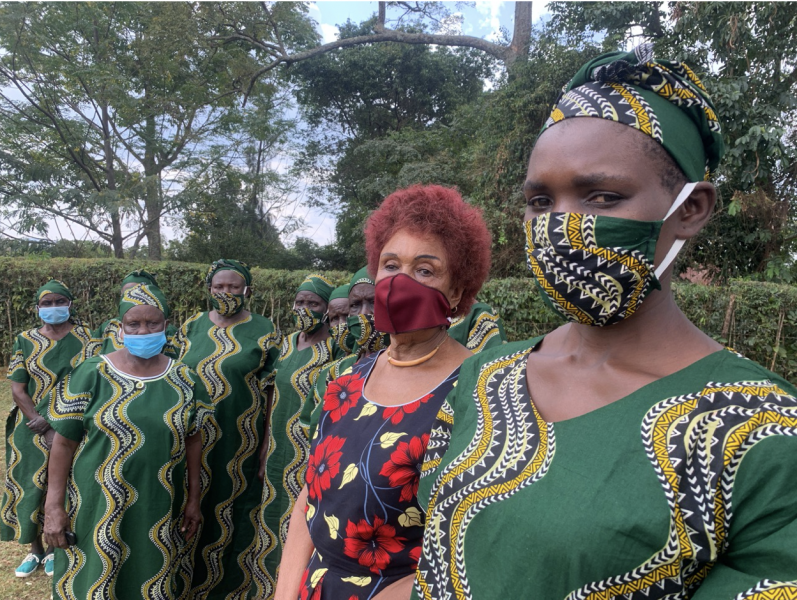
Kenya increases uptake and equity for COVID-19 vaccinations
Health System & UHC, Communicable Diseases
December 7, 2021
African Region
Kenya
Like many other people in Siaya County, Western Kenya, Margaret Awino, a member of the Doho Ukwaka Magombe Masat Association (DUMMA) women group, was fearful of receiving the COVID-19 vaccine due to negative rumours circulating in the community.
“When the COVID-19 vaccination was introduced, I heard people say it will kill older people. I was afraid. But I have now been well-informed and I have also seen that those who were vaccinated earlier did not die. I want to go for vaccination. And today, I heard WHO say that when one is vaccinated and gets the disease, it will not be severe enough to cause death,” said Margaret.
Engaging local communities to support the COVID-19 response and accept the vaccine has been a core part of the Government of Kenya’s response to COVID-19. This is something that WHO, with support from a Canadian grant through the UHC Partnership, has been supporting strongly. Efforts have focused on mobilizing local leaders, including government officials, women and youth groups, religious leaders, and even taxi drivers to counter myths and misinformation, as well as undertaking risk communication.
Kenya is among the 115 countries and areas to which the UHC Partnership helps deliver WHO support and technical expertise in advancing universal health coverage (UHC) with a primary health care (PHC) approach. The Partnership is one of WHO’s largest initiatives on international cooperation for PHC and UHC. It is funded by the European Union (EU), the Grand Duchy of Luxembourg, Irish Aid, the Government of Japan, the French Ministry for Europe and Foreign Affairs, the United Kingdom – Foreign, Commonwealth & Development Office, Belgium, Canada and Germany.
To read the original article please click here